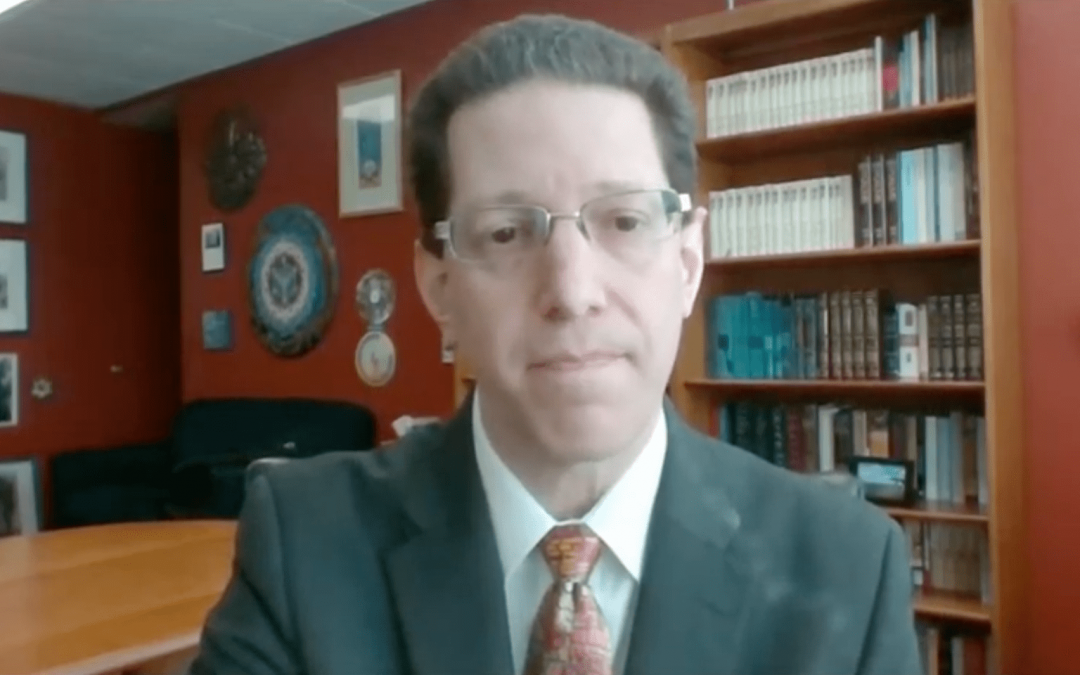WASHINGTON – The rabbi who led hostages to safety during an attack on his Texas synagogue last month said federally funded security training “gave [him] the courage to act.” Rabbi Charlie Cytron-Walker urged Congress to increase federal funding for a program that would help other religious leaders prepare for such assaults.
Citing a striking incline in antisemitic attacks and sentiments across the country, members of Congress and the Jewish community unanimously advocated for increased funding in the Nonprofit Security Grant Program during a House Committee on Homeland Security hearing Tuesday.
According to the FBI’s crime data report for 2020, religious bias was the second highest motivator for hate crimes that took place that year, with anti-Jewish sentiment accounting for the highest percentage.
In his first testimony before Congress, Cytron-Walker recounted the traumatic event that occurred last month and emphasized the importance of the security training he had received, before January, because of NSGP funds.
“I am grateful to be here. To be honest, I’m grateful to be anywhere,” Cytron-Walker said. “I am so grateful that six years ago, almost to the day, I attended the Faith Based Security Summit that was hosted by the FBI, Homeland Security, and our region’s U.S. attorney’s office. It was my first education related to active shooters and the first time I was introduced to the concept of a security committee.”
Cytron-Walker said that the training sessions had “helped [him] stay alert, look for an opportunity, and gave [him] the courage to act” when an armed terrorist showed up on the front door of his synagogue.
However, he said that all religious congregations do not have the financial support of NSGP funds to afford such training, noting that only half of NSGP grant applications had been approved for 2021.
“Every congregation needs to be prepared, yet the gap between need and funding is profound,” he said.
Lawmakers echoed Cytron-Walker and pledged to approve more funding for the grant program in a bipartisan manner.
Rep. Elissa Slotkin (D-Mich.) said an increase in funding for the NSGP was the first natural step the government could take to make vulnerable religious communities more secure. She emphasized the profound difference the grant had made in protecting synagogues, mosques, churches, and community centers in her home state of Michigan.
Rep. Val Demings (D-Fla.), chairwoman of the Emergency Preparedness, Response, & Recovery Subcommittee, said houses of worship were “increasingly being targeted” and that “the demand for this program has risen exponentially.”
Homeland Security Committee Chairman Rep. Bennie Thompson (D-Miss.) applauded the $100 million increase in funding for the NSGP that was included in the Build Back Better legislation that failed to pass in the Senate and stressed that it is imperative for similar legislation to pass in order to support vulnerable religious communities
Thompson said the Jewish community remains a primary target for violent extremists across the ideological spectrum.
“While the [Beth Israel] attacker appears to have been motivated by the desire to force the release of an Islamist terrorist, the approach he took was predicated on the belief in historic and dangerous antisemitic tropes about so-called ‘Jewish power,’” Thompson said. “Such tropes are a prominent feature of a number of conspiracies espoused by QAnon and others and put real people in danger.”
Rabbi Yosef Konikov from Orlando, Florida, said it was important to dispel such conspiracy theories spread by “radicals and prejudiced, misguided citizens” as it was preventing members of the Jewish community from openly practicing their faith.
“I know people in today’s climate actually hesitate to openly observe our religion, to study with us or just to come by to get inspired,” Konikov said.
The committee ended the hearing after taking suggestions from witnesses and speakers on how to combat domestic religious extremism.
Cytron-Walker said that hatred and misinformation was at the core of such assaults on another person’s faith, and addressing incorrect stereotypes and building interfaith relationships between communities was essential.
“We need those relationships before something bad happens. We need the relationships on a national, state and local level with regard to government,” Cytron-Walker said. “We don’t have to be experts in one another’s religions, but we do need to know each other and see each other, and see the humanity within.”


